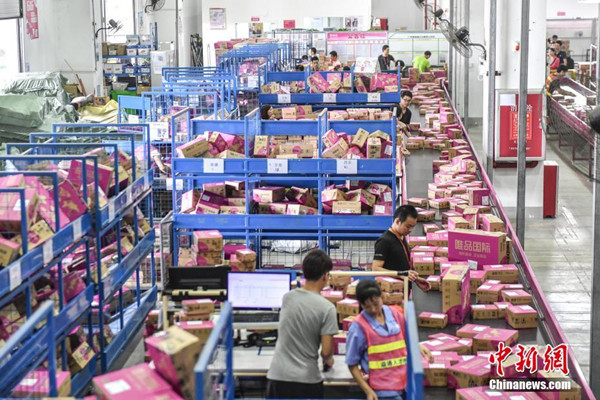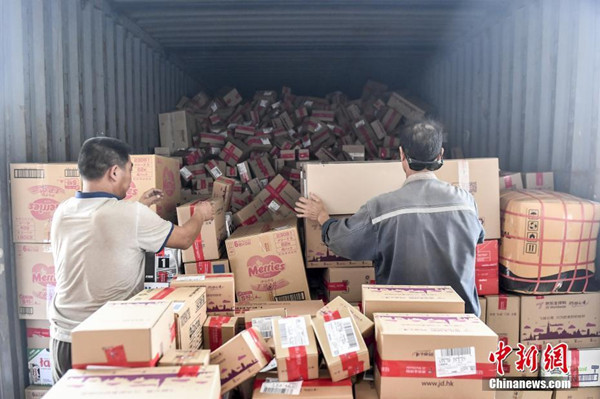Guangzhou leads China in cross-border e-commerce

Guangzhou is the top city in China for cross-border e-commerce, after bringing in a total revenue of 21 billion yuan ($3.23 billion) in 2017.
The results come off the back of the city strengthening its efforts to foster new business formats for foreign trade and improve its trade facilitation.
In 2017, more than 210 million import and export manifests were processed by Guangzhou Customs with more than 1.58 billion yuan in tax contributed to the local economy, up 31.7 percent and 180 percent respectively year-on-year.
On Nov 11, China's biggest online shopping day, Guangzhou Customs reviewed and processed over 2.5 million cross-border e-commerce manifests worth 630 million yuan, three times the volume of last year. More than 100,000 manifests were dealt with every hour by Guangzhou Customs, nearly 25 times the speed on normal days.

Workers sort parcels at a bonded warehouse in Nansha district, Guangzhou on Nov 11, 2017. [Photo/Chinanews.com]
The smooth handling of e-commerce manifests at peak hours is the result of Guangzhou's fast-growing cross-border e-commerce industry and strengthened efforts to roll out intelligent customs clearance systems, cut red tape and explore new approaches in e-commerce pilot zone and e-commerce industry cluster construction.
The special "Market Purchase" declaration mode enables the customs office to finish declaration in seconds. It also means we can choose to declare exports in Guangzhou's Huadu district while exporting from Nansha or Shantou ports, which saves a great amount of transportation cost, according to a customs declarer of a Guangzhou-based foreign trade company.
The "Market Purchase" mode refers to a special pilot foreign trade pattern in Guangzhou which allows a foreign trade company purchasing products with a total value of less than $150,000 for each deal at a designated market place to handle the customs clearance procedures within the city it purchases products.

Over 2.5 million cross-border e-commerce manifests worth 630 million yuan are inspected by Guangzhou Customs on Nov 11 last year. [Photo/Chinanews.com]
MOST POPULAR
Editors' Picks
 Infographic:
Milestones in China's high-speed railway development
Infographic:
Milestones in China's high-speed railway development
 Infographic:
China's NEV industry performance review
Infographic:
China's NEV industry performance review
 Infographic:
China's low-altitude economy: A transformative force
Infographic:
China's low-altitude economy: A transformative force




